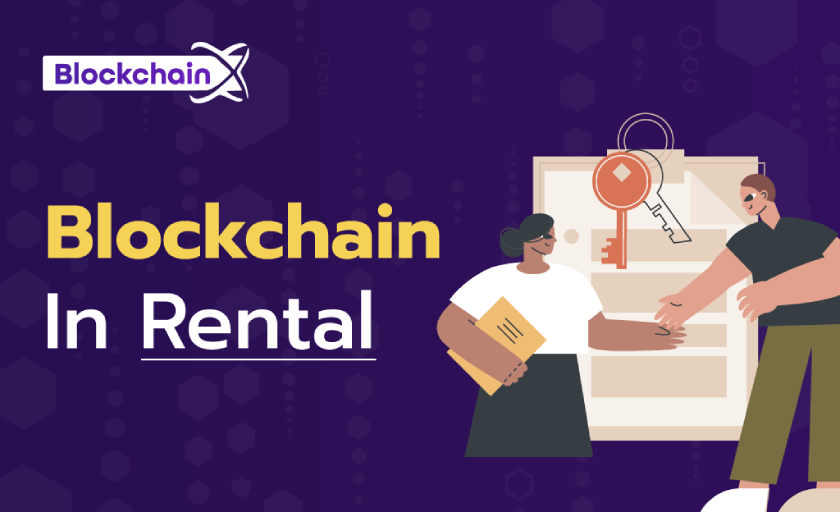Table of Contents

Overview
The property rental sector is much of ‘a pen and paper’ sector, where almost everything is done through a long chain of intermediaries and a lot of paperwork. The process of renting is time-consuming and tiring, but nothing has been done in the sector. This sector often relies on archaic methods for managing business and keeping records. Technology has now begun to reshape the process of globalization. Everyday, the IT sector is developing new technology faster and more reliably than the previous one. One such technology is the blockchain technology. Many sectors have discovered the sheer amount of positive utility of blockchain in their space.
This technology is being evolved for various other sectors, including the rental sector. For this sector especially, it can prove to be revolutionary and solve many of its existing problems.
Issues faced in Rental
Everyone's distant desire
Investments in real estate require a good amount of capital, which not everyone can afford. This sector has always had too many barriers like citizenship, credit scores, high interest rates, financing, etc.
Complete opaque way
This sector severely lacks transparency; there are depths of corruption and dishonesty in this business. A high degree of transparency is required to combat fraud cases, tax evasion, and money laundering.
Expensive Fees
A lot of intermediaries are involved in this sector, so at each level there’s a cost involved, making it super expensive. Fees like broker fees, transfer fees, attorney fees, investment fees, taxes, etc.
Lack of Liquitidy
Liquidity can be defined as the speed at which an asset can be turned into cash. Real estate is a fixed and long-term investment; nobody buys it with the intention of selling it in the future. They are very difficult to liquidate primarily due to ups and downs in the market, and there can be high chances that when a person is willing to sell their property, there might not even be a buyer.
Pricing Commitments
To invest in rentals, investors should have a lot of money up front. To keep the deal, they sometimes have to choose expensive financing options.
Transaction Speed
Real estate transaction speed may appear to be as simple as transferring one property to the name of another. But it actually consumes a lot of time, one can expect that they will find a suitable property in six months, but they definitely do require another six to complete the paperwork and payment procedures. Such a delayed process also results in a high fee structure.
How Blockchain can help with Rentals
In simple words, a Blockchain is a time-stamped series of immutable data stored in a decentralized ledger system that is accessible to all involved parties. The blockchain has the potential to transform the rental sector in many ways, but the primary benefits are smart contracts and tokenization.
Smart Contracts
Smart contracts are self-executing contracts. These automated contracts have a special system where there are specific instructions written in their codes, that are executed only when certain conditions are met. These contracts will cut off the middlemen and their share, making the process cheaper. This will also help in bringing transparency, as they cannot be tampered with or altered. It will also reduce the time consumed by paperwork in the whole process.
Tokenizaation
A Token is a digital representation of an asset, a value, or a
function present in the real world. Blockchain technology will help
create real-world tokens for the rental. Tokenization not only
increases the liquidity of the asset but also helps in trading these
assets without involving any third parties.
This will facilitate fractional ownership of property and save costs
by excluding middlemen.
Better Financial Evaluation and Due Diligence
Physical paperwork and a manual verification process can involve the providers and are more likely to introduce errors in the process. Digitization of the process will make it cheaper, more secure, and more efficient, and will speed up the due diligence process.
Financing and Payment System
Due to the extensive documentation needs and the involvement of various intermediaries, the payment process is expensive, time-consuming, and opaque. Once the data is present on decentralized technology, it will become more transparent, have secure documentation and verification processes, decrease the number of involved parties, and make it more convenient for both the buyer and the seller.
Challenges
Though blockchains can help solve various problems, they still face many issues with their adoption, like Regulation, Scaling, Standardization and Widespread Adoption.
Regulation
The current environment is regulated by the government, financial institutions, and courthouses. Through digitization, there would be less control, and regulation can become tough.
Scaling
There are millions of transactions that take place. This technology cannot store much data. This is a major problem as it limits the number of transactions stored.
Standardisation
There are many blockchain technologies, but they are not interoperable. This results in a lack of standardization or interoperability.
Widespread adoption
As blockchain is still an emerging technology, most people do not fully understand its usage and applicability. The adoption of its technology will take a lot of time.
Conclusion
Though it seems that all the flaws prevailing in the rental sector can be covered by blockchain technology, it still has a long way to go to fully inscribe itself in the global system.





